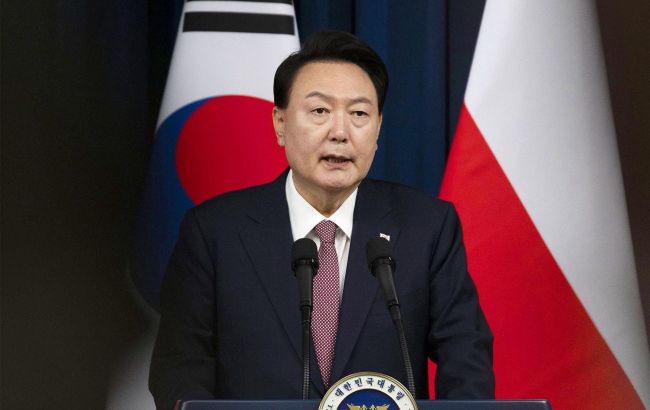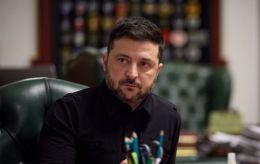Court refuses to extend arrest of President of South Korea
 President of the Republic of Korea, Yoon Suk Yeol (photo: Getty Images)
President of the Republic of Korea, Yoon Suk Yeol (photo: Getty Images)
The court rejected the prosecution's request to extend the detention period for South Korean President Yoon Suk Yeol. No grounds were found to keep the leader in custody for another 10 days, reports Yonhap.
The Corruption Investigation Office for High-ranking Officials (CIO), which is conducting the investigation, transferred the case to the prosecution on Thursday, January 23, and requested that charges of treason and abuse of power be brought against Yoon.
The Attorney General stated that the detention period for the suspended head of state should end around January 28. They expect prosecutors to petition the court for an extension of 10 more days before officially charging the president.
However, the Seoul Central District Court on Friday, January 24, rejected the prosecution's request, citing the lack of sufficient grounds to continue the investigation under the prosecution's authority, as the case had already been transferred to the prosecution.
Under the law, a suspect may be held in detention for up to 10 days, with a possible extension of an additional 10 days. The president was arrested on Sunday, January 19.
Defense's position on the president
Yoon's lawyers have consistently argued that the CIO does not have the authority to handle his case, as the law specifies a broad list of high-ranking officials and offenses that it can investigate, but does not mention treason.
They also stated that any criminal investigation should take place only after the Constitutional Court decides whether to remove Yoon from office in a separate impeachment trial.
On Friday, the lawyers issued a statement welcoming the court's decision, asserting that the CIO's investigation was illegal, and urged the prosecution to resume the investigation.
Attempted military coup in South Korea
On December 3, the President of the Republic of Korea, Yoon Suk Yeol, declared martial law in the country. This move was aimed at limiting opposition activities and imposing media censorship.
The decision triggered a political crisis, accompanied by protests in Seoul. The parliament and the government did not support the president's decision. Later, Yoon lifted the martial law, which lasted about six hours.
On December 14, the Korean parliament impeached Yoon and suspended him from his duties.
On January 15, law enforcement officers detained Yoon on their second attempt and placed him in the Seoul detention center.
On January 18, the court issued a warrant for the official arrest of Yoon Suk Yeol.

